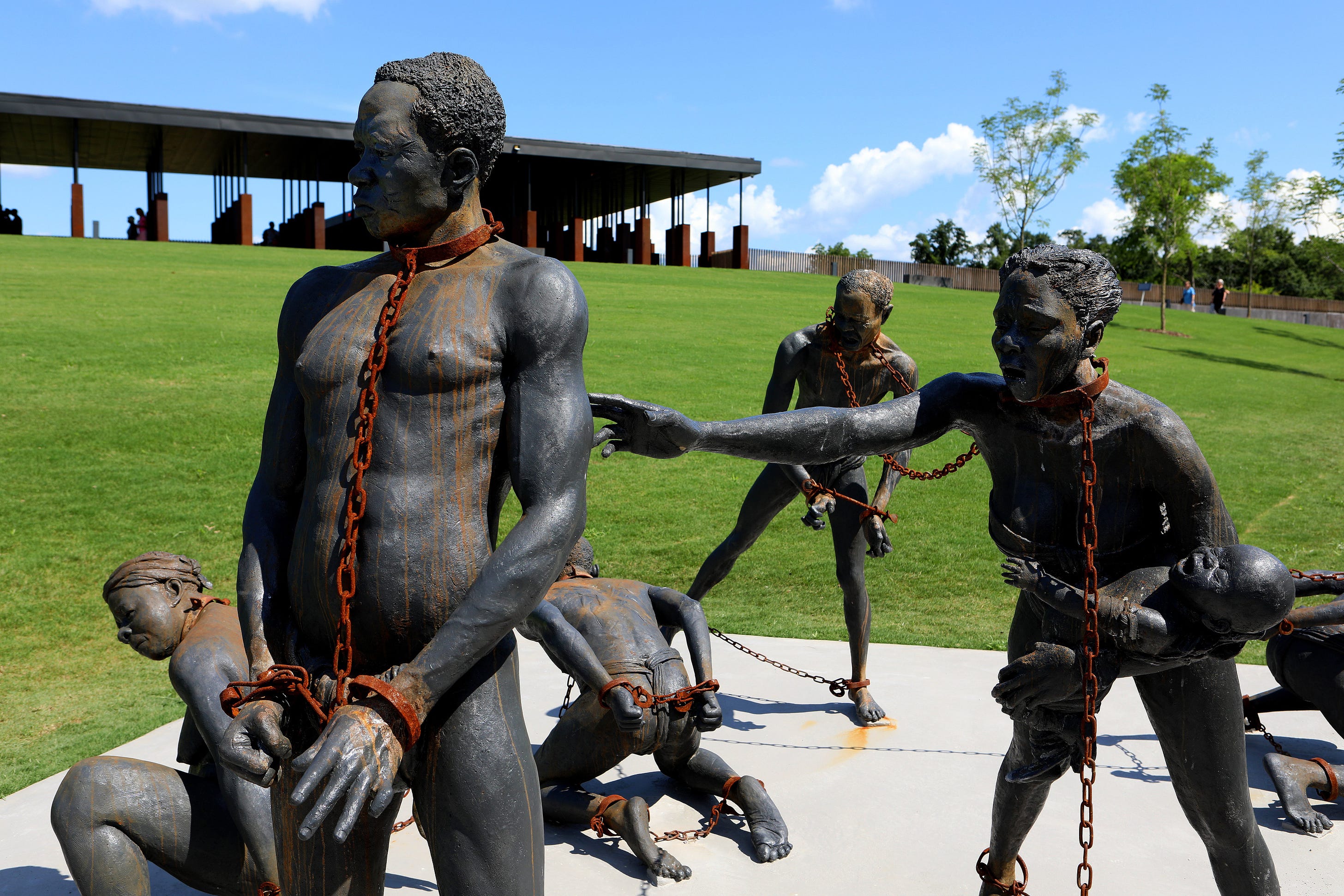Kwame Akoto-Bamfo‘s “Nkyinkim” sculpture, dedicated in memory of victims of the Transatlantic slave trade, at the National Memorial for Peace and Justice in Montgomery, Alabama (Photo credit: Raymond Boyd) I was born 66 years after slavery was legally abolished by the 13th Amendment to the United States Constitution. Not exactly ancient history. Today, that’s how long ago the Eisenhower administration was, or Elvis Presley’s first number one hit.
And the legacies of slavery — lynchings, Jim Crow, disenfranchisement — were woven tightly into the American tapestry of my youth. They still echo with us. Loudly and persistently. No matter how much some would want us to ignore the clamor of justice.
As much as we wish American history were different, tragedy is part of our reality. We do a grave disservice to future generations if we sanitize the truth. People can behave horribly. Societies that profess noble values can countenance violent bigotry. We can either look back from whence we have come with clarity, or we can try to muddy the roots of the present and weaken ourselves in the process.
This week, the Florida State Board of Education reworked its standards for teaching Black history. The changes come in response to the state’s so-called “Stop W.O.K.E. Act.” Passed last year, it limits training and education around issues of race, sex, and other criteria for systemic injustice. At its heart is a core belief that has animated right-wing culture warriors: that people alive today should not be made to feel bad or even uncomfortable by the sins of the past. The thinking goes, that was a long time ago.
But of course it really wasn’t. And the legacies of the past live on. And if we don’t learn from history, we are bound to repeat it.
Proponents of these new standards, especially their biggest cheerleader, Governor Ron DeSantis, say they promote teaching positive achievements of Black Americans in history. No problem there. It’s when it comes to the other side of the coin that we have a big issue — the new lessons seem intent on downplaying the horrors of the Black experience. In other words, once again, the truth. The truth revealed by hard facts.
One passage that has gotten a lot of attention is for middle schoolers. It states they should learn that “slaves developed skills which, in some instances, could be applied for their personal benefit.” The danger of this narrative is striking. A system that brutalized, raped, and killed human beings while stealing their freedom and denying their humanity is rotten to its core. That enslaved people were able to find resilience and build lives in some form is a testament to their courage and spirit. There is no “other side” to the story of slavery.
It is true that these new standards, as horrific as they are, would have been a great improvement over what I learned in my segregated middle school. We have come a long way. But that was because of the bravery of civil rights leaders and activists who fought, sometimes with their lives, for a full realization of American values. Any receding from progress — as this surely is — represents a threat to our democracy. We have been strengthened as a nation, all of us, by a national movement to right the wrongs of our past.
It is tempting to try to ignore DeSantis. He is a bully. He wants a reaction. He uses cruelty and disingenuity to garner headlines. He feeds off the anger of his adversaries.
But he also has power. And the lessons of history tell us that we should not ignore would-be autocrats.
The generation that lived through the fights over civil rights in the 1950s and ‘60s is passing away, much as the generation that remembered the Civil War did during my own youth. The loss of the earned knowledge of living through and fighting for change is profound.
This makes it all the more important that when we teach history, we teach the truth, the whole truth, and nothing but the truth. Or as close to it as is humanly possible.


No comments:
Post a Comment
Note: Only a member of this blog may post a comment.